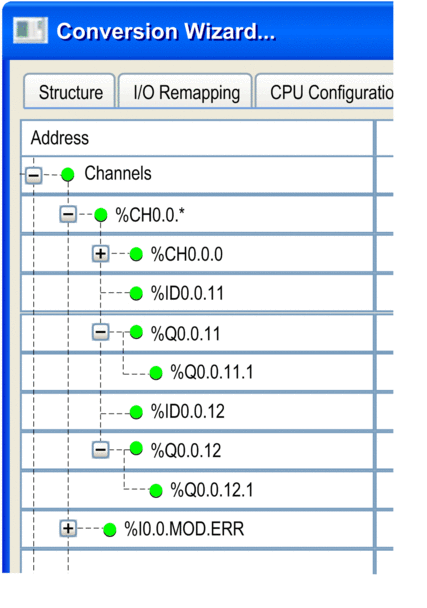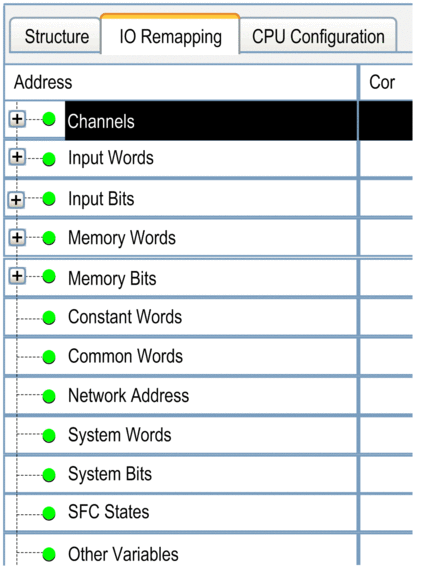Overview
The tab of the conversion wizard shows the I/O objects of an analyzed legacy application in a table view.
By means of this table view you can remap I/O objects before conversion.
The tab provides additional features to ease special remapping operations (, , ).
The tab is applicable for all applications coming from PL7, Concept or ProWORX32.
Syntax of I/O Objects
For the detailed syntax of I/O objects and their correspondences in Control Expert please refer to the specific documentation to be found under:
For Concept Converter, refer to chapter System.
For PL7 Converter, refer to chapter Correspondences between PL7 and Unity Pro: language objects.
Address Column
Directly addressed I/O variables (topological addresses) are represented in the column of the conversion wizard as shown in the following example.
Please also refer to chapter Topological Addresses of PL7 Micro in the Conversion Wizard.
Embedded counter channels of a PL7 TSX Micro CPU

For detailed address description please refer to chapter Direct Addressing Data Instances.
Corrected Column
The addresses in the tab are formally adapted to Control Expert syntax, but have the same numerical values as before in PL7.
For details please refer to chapter Memory objects (variables and constants).
In the column only direct addresses following the Control Expert syntax may appear.
If modules do not exist in Control Expert, existing I/O objects have to be mapped manually to other regular modules of the targeted PLC.
I/O Object Remapping
is applicable to all selectable source formats and PLC families coming from PL7, Concept or ProWORX32.
Variable Families
Because applications can have very many variables, the variables are structured into families.
A variable family is characterized by direct addresses of the same semantically meaning, e.g. Word addresses or addresses of boolean variables.
Table View
The names of all variable families are listed in the table view.

If there is no extension sign (+) in front of a variable family, no object of this family is present in the application.


